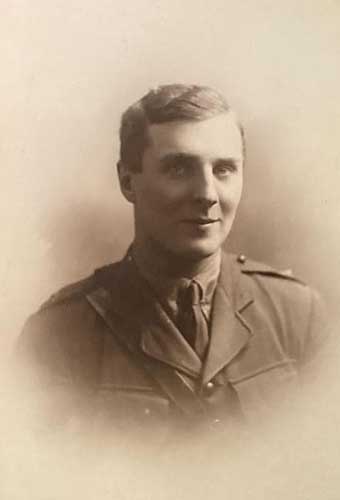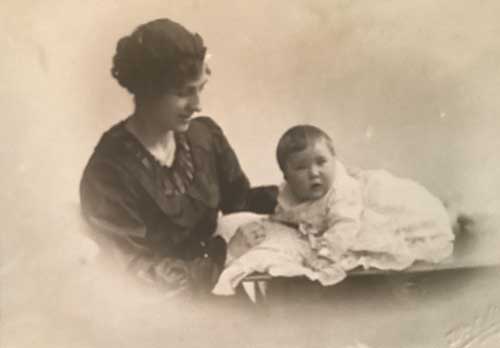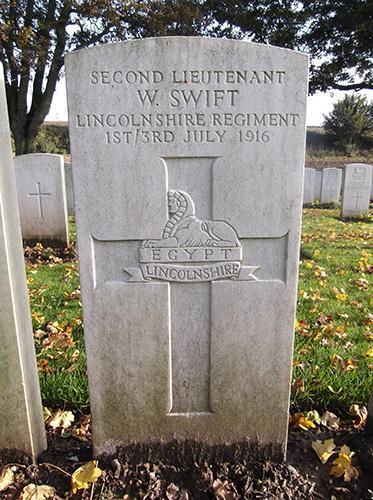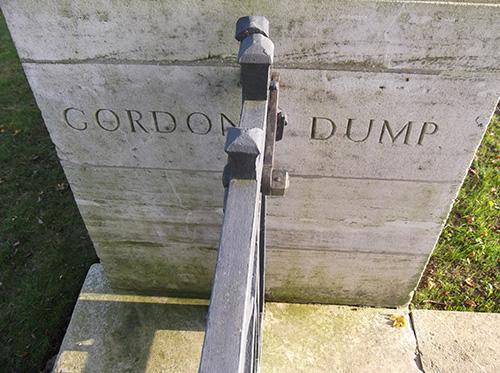Biography of 2nd Lieutenant William Swift
8th Battalion Lincolnshire Regiment
Died 1st July 1916
Soldier
- Name: William Swift
- Date of birth: 1889
- Place of Birth: Morton, Lincolnshire, England
- Date of Birth Registration: April – June 1889
- Place of Birth Registration: Bourne, Lincolnshire, England
Father
- Name: George Henry Swift
- DOB: 23rd May 1862
- Place of Birth: Morton, Lincolnshire, England
- Occupation: Grocer, draper, coal and corn merchant
Mother
- Name: Mary Ann Wright
- DOB: 30th January 1866
- Place Of Birth: Brentford, Middlesex, England
- Marriage: 17th January 1887 All Saints, Walworth, England
Siblings: (Name), (DOB), (POB)
- Laura Agneta Swift, 1887, Morton
- William Swift, 1889, Morton
- Bertha Swift, 1890, Morton
- Percy Swift, 1893, Morton
- Ella Mercia Swift, 1898, Morton (Died 1898)
Census
- 1891: William is living with his parents in Morton, Lincolnshire.
- 1901: William is living with his parents in Morton, Lincolnshire.
- 1911: William is living St Peter’s College, Peterborough, Northamptonshire. The census gives him an age of 21 and he is listed as a student (training college).
Relatives in services
- William’s cousin John Charles Swift also fought and was killed in WW1. John can be found on our page dedicated to the Bourne Memorial.
Wife
- Name: May Butler
- Date of birth: 1895
- Place of Birth: Cleethorpes, Lincolnshire England
Marriage
- Date of Marriage: 1915
- Place of Marriage: Clee, Lincolnshire, England
Children
- Megan Fricourt Swift, 1916, Grimsby
Wife’s parents
- Father: Charles Arthur Butler
- Mother: Ellen Richmond
Newspaper Mentions
- Grantham Journal Saturday 15th May 1915
MORTON
CONTRATULATIONS to Lieut. William Swift, who has recently obtained his commission in the 9th Battalion Lincolnshire Regiment. Mr. Swift, who quite recently retired from business in Morton. Lieut Swift is a schoolmaster, and had been most sucessful in his profession at the time of entering the Army, being a student at Cambridge University and a member of the Officers’ Training Corps. This week, Mr Swift is home on leave for a few days, after which he departs to Grimsby to continue his training with the 3rd Battalion Lincolnshire Regiment. Mr Percy Swift, brother, has also joined the forces, his choice being the 5th Leicesters.
- Grantham Journal Saturday 1st July 1916
LETTER FROM AN OLD MORTON BOY – The following extracts are taken from an interesting letter from Lieut. W. Swift, to Mr. J. W. Palmer:- “I have had a lot of moving about since coming here, a variety of billets, some good and extremely bad, abd many curious situations, but we have to take the bad with the good and hope for butter times some day. I have slept in a wood, in an orchard, in a muddy trench, in a dirty bed in a French farmhouse, and occasionally have had the luxury of a decent feather bed in a respectable hotel. An extremely pleasing feature about this existence in the manner in which our spendid lads adapt themselves to their trying circumstances. Sometimes wet through, or covered with the mortary mud from chalky trenches, and terribly hot with heavyroads on long marches. they still “carry on” with square chins. I feel quite proud to be amongst such a fine lot of felloes, both officers and men. You don’t realise what the Britiah Army is like until you see it in this country. I have been in the trenches several times, once for a period of ten days. During this time we had several exciting hours, whar with one thing and another. They shelled us with all kinds of stuff. sausages, canisters, and whizz-bangs, but our heavies alway replied quickly with about three to the Huns’ one. The sausages you can see falling if your eyessight is good, but the whizz-bangs, as their name implies, come “some pace.” In one part of the line we could only get sufficient water up for drinking, so you can imagine how I gave my razor a rest, and the luxury of a bath after keeping clothes on so long. I often see Fisher Handford, and his officer tells me he is one of the best and cheeriest in his platoon. Certainly, Fisher is always smiling when I see him. I feel pround to think he is a Morton boy. You can tell his mother he is the picture of health. At presnet, I am billeted ina farmhouse. The French people. what few there are left round here, keep their gardens in beautiful order, and scrupulously clear. In this place, another officer and myself share a room, and we are absoletely overrun with rats. Last night, we made a couple of traps with our steel helmets. We propped them up with a sardine tin, and placed a tempting piece of cheese inside. We sincerely hoped for success, but our friend rat was too cute for us, eating the cheese without disturbing anything else. There is a decent artists from the music halls, who entertain us on returning from the line. It is a fine thing for keeping up the spirits and taking you mind from grenades, Hunsm &c. Boxing and football matches seem to catch on the best, but in these June days I often wish for a bit of cricket, though the fround, of course is unsuitable for that.”
- Lincolnshire Echo Monday 17th July 1916
Reported under various dates:-
KILLED
LINCOLNSHIRE REGIMENT
Second Lieut. J. Anstee
Senond Lieut. G. W. H. Applin
Second Lieut. L. C. Andrews
Second Lieut. B. L. Courtice
Second Lieut. J. F. Cragg
Second Lieut. S. Shankster
Second Lieut. W. Swift
Capt. L. D. Wickham
- Lincolnshire Echo Monday 17th July 1916
Second Lieut. William Swift, Lincolnshire Regiment. oldest son of Mr. and Mrs. W. Swift of Morton, near Bourne, Lincolnshire, has been killed in action. In civil life he was in the scholastic profession. He commenced as a pupil teacher in Bourne Council School, and matriculated at London University. He had a successful career at Peterborough Training College, and to obtain his degree at Cambridge he entered St Catharine’s College, but his undergraduate period was broken by his entering the Army.
- The Time Monday 17th July 1916
ROLL OF HONOUR
687 CASUALTIES TO OFFICERS
228 REPRTED DEAD
The following casualties are reported by the War Office:-
SWIFT, Sec. Lieut. W., Lincolnshire Regiment
- Boston Guardian Saturday 22nd July 1916
LIEUT. W. SWIFT.
Sec. Lieut. William Swift, Lincolnshire Regiment, eldest son of Mrs. W. Swift, of Morton, near Bourne, has been killed in action. In civil life he was in the scolastic profession. He commenced as a pupil teacher in Bourne Council School, and matriculated at London University. He had a successful career at Peterborough Taining College, and to obtain his degree at Cambridge he entered St. Catharine’ College, but his undergraduate period was broken by his entering the Army.
- Grantham Journal Saturday 22nd July 1916
LINCOLNSHIRE REGIMENT CASUALTIS.
Officers
Killed – Second-Lieut. L. O. Sharp, Second-Lieut. R. Sherwell (attached R.F.C.), Capt. B. L. Needham, Second-Lieut. J. Anstee, Second-Lieut. G. H. W. Applin, Second-Lieut. L. C. Andrews, Second- Lieut. S. Shankster, Second-Lieut.F. Hilton, Lieut. R. L. Courtice, Lieut. J.F. Cragg, Lieut. W. Swift, Lieut. R. Fitz R. Herapath, Lieut. J. H. Parkinson, Lieut. H. Gooth.
- Grantham Journal Saturday 29th July 1916
WAR LETTER FROM BOURNE BOYS.
One of the old Council School boy, writing to Mr. J. J. Davies, says:- I have seen very close quarters many of the prisoners we have taken, and I am struck by the sullen, almost criminal type of face. One is not astonished at the cruelties of which we have heard. These hundreds of figures are clad in grey; dirty, miserable looking. I do not think any scenes of past history can rival the tragic and glorious episodes enacted here during the last three weeks. One sees the khaki-clad Briton going fearlessly, even brightly, into the fight, and one sees the wounded returning, who, whatever they suffer, are yet smiling and cheerful. What a splendid lesson. These scenes are beyond my powers of description. Your imagination must fill in the picture: who can fail to be profoundly impressed? It gives one food for thought. What a terrable lot the Germans will have to answer for. Still the “push” goes on. The opinion of all here is that the end, a glorious one for the Allies, is not many months distant. I am sorry to hear that Lieut. Swift has been killed: he has given life for others. No finer death can amn die. Duty well done and death even on a battlefield has its glory.
Military Records
- None found
Soldier’s Died In The Great War
- These records show that Temp Second Lieutenant William Swift, Lincolnshire Regiment was killed in action on 3rd July 1916 in the Western European Theatre in France and Flanders.
Pension Records
- Available
Effects Left To
- Wife Mrs Mary Swift
Medals
- The British Medal
- The Victory Medal
Memorials
- UK:
- Morton, Roll of Honour in St John the Baptist Church
- Bourne, Bourne War Memorial in the Memorial Gardens
- Peterborough Cathedral, St Peter’s Training College War Memorial
- Cleethorpes. St Peter’s Church
- Commonwealth War Graves Commission:
- In memory of Second Lieutenant W Swift, 8th Bn., Lincolnshire Regiment who died on 1 July 1916
- Remembered with honour, Gordon Dump Cemetery, Ovillers La Boisselle
- Grave II. M.9

© Sandra Cumming

William’s wife May and daughter Megan Fricourt Swift.
© Sandra Cumming

© Picture taken by South Lincolnshire War Memorials

© Picture taken by South Lincolnshire War Memorials
Military Service Timeline
- We are not sure when William enlisted in the Army but we do know that he trained with the 3rd Battalion Lincolnshire Regiment. The 3rd were a Home Service battalion and would traditionally be responsible to guarding essential infrastructure such as docks, munitions factories and other work necessary for the war effort. During the first phase of the war the Battalion would be responsible for training before the formation of the Army Training Reserve in 1916 once conscription was introduced.
Similarly we do not know exactly when William joined his Battalion, the 8th Lincolns.
The 8th Battalion Lincolnshire Regiment was formed in 1914 and after training camps in England eventually was sent to France in September 1915. The medals roll shows that William entered foreign service in France on 8th April 1916 at this point joining the Battalion that were already in the field.During his training with the 3rd Battalion he gained his commission and in May 1915 was granted leave, coming home to Morton visiting is recently retired father before returning to Grimsby.
Returning to Grimsby to continue his training, William was to marry May Butler in Grimsby district between September and December 1915. It is not known if, when he left for the front he following April, William was aware that May had fallen pregnant.
The medals roll shows that William entered service in France on 8th April 1916. This was the day that the Battalion marched to Buire, on the River Ancre, four miles south-west of Albert, whence it furnished large working parties.
On the 14th April the 8th battalion moved to support positions about Becordel-Becourt village where, till the 22nd, much work was done on the forward trenches. William eventually joined the Battalion in the field on the 19th April and was posted as a Platoon Commander.
The first Battalion relieved the 8th on the 22nd of May in the right sector opposite Fricourt. The 8th Battalion then moved to La Neuville, opposite Corbie, on the Ancre river.The attack for the first battle of the Somme could be seen to have started on the 24th June when one thousand five hundred and thirteen artillery guns opened on the enemy trenches. Day after day the guns continued to pour thousands of shells into the enemy trenches until they resembled a rubbish heap; but below ground, the enemy troops sheltered in deep dugouts, were safe from even the enormous shells of our “heavies”. In no less than 40 places gas was discharged and every enemy observation balloon was destroyed. The enemy replied fitfully to the shelling as they only had two hundred and forty guns on the Somme front at this stage.
At the end of June, the 8th Battalion Lincolnshire Regiment was detailed to support the 8th Somersets in the attack on the German positions planned for the 1st of July (the first day of the first battle of the Somme) and on the 30th of June moved to assembly trenches near Becordel-Becourt village.
The plan for the 8th Battalion Lincolnshire was to be the second wave of the attack with the York and Lancasters on their right and to filter through the new line once the Middlesex and Somersets had taken the first objective. Then one company of the 8th Battalion Lincolnshires was to advance immediately with the Somersets to clear the enemy front line trenches and fall in behind the remainder of the battalion as it advanced.
Throughout the night the guns bombarded the enemy lines in front of the zero time of 7.30am on the 1st ofJulyAt 7.25am the leading platoons of the advanced battalions carried out their plan and attempted to crawl towards their objective.
The Guns lifted at 7.30am and the enemy left their deep dugouts and placed machine guns to meet the advance with destructive force tearing gaps in the advancing battalions. The Middlesex and Somersets lost fifty percent of their men in the advance yet survivors reached the enemy trenches.
The 8th battalion Lincolnshires attacked with B and C companies; supported by A company with D company in the rear as a carrying party with picks and shovels, trench stores, ammunition and bombs. The leading platoons lost half of their number but the survivors reached the enemy front line and after being checked by machine gun fire the bombers got to work and knocked out the defences.
- The survivors joined by successive platoons swarmed over the battered front line and crossing Empress trench and Empress Support reached the Sunken Road. The numbers of officers and men that got thus far we small in numbers because an enemy barrage was falling on no mans land and the supporting platoons suffered heavily.
The battalions bombed their way down the enemy communications trenches, Dart Lane, Brandy Trench and finally Lozenge Alley was reached. En-route every dug-out was bombed and the trenches themselves were battered beyond recognition being just a mass of craters.
One stokes gun remained with the Lincolnshires and gave valuable assistance until the officer in charge and his team were knocked out. A Lewis gun team arrived and gave great assistance to the advance.
Only two parties of the 8th battalion reached Lozenge Alley numbering about one hundred men and started the act of consolidation. Between 4 and 5pm orders arrived from Divisional HQ to consolidate the positions they held with the Lincolnshires holding part of the system from Dart Alley to and including Lozenge Alley. Throughout the night the 8th Lincolnshire successfully repulsed a bombing attack from the direction of Fricourt.
The right flank of the Lincolnshire area was attacked from Fricourt up Lonely Trench. Men were posted at the junction of Lonely Trench and Lozenge Alley and the enemy only once got in thanks to their rifle grenades but were soon turned out at a loss to the Lincolnshires of some men of Lozenge Alley and at least 20 in Lonely Trench. Two enemy drums were captured here and sent to the depot at Lincoln.When Darkness fell on the night of the 1st July, although initial success had not been maintained, progress had been made at many points. Although Fricourt had not been taken it was now pressed on three sides with the 21st division holding the north which included the 1st and 8th Battalions of the Lincolnshire Regiment.
During the night the 8th Battalion had worked hard consolidating their positions from Dart Alley to Lozenge Wood and were protected from a counter attack by an artillery barrage.
Seven Lincoln Battalions in total were involved in the advance on the first day of the Battle of the Somme, known as the Battle of Albert, and the description of actions above was just one of many similar accounts that can be applied to all Battalions involved in this advance. It must be remembered that this day was followed by another 12 before the Battle of Albert was over.
8th Lincolnshire – 5 officers killed, 30 other ranks killed, 8 officers and 170 other ranks wounded, 34 other ranks missing. In total 13 officers and 235 other ranks.Second Lieutenant William Swift was killed on the 1st July 1916 during the advance on the first day of the Battle of the Somme and less than 3 months after arriving in France. The CWGC officially states that he died between the 1st and 3rd of July, but he is mentioned amongst the dead in the Battalion diary for the 1st of July.
On the very same day that William lost his life in battle, a letter he had written to his old headmaster Mr J Palmer in Morton was published in the Grantham Journal, the readers not knowing his fate during that day.
Sources
- WW1 Soldier’s Records (www.ancestry.co.uk)
- British Newspaper Archive.
- Fold 3
- Find My Past
- Genealogist
- Forces War Records
- British Army Service Numbers
- War Gratuity Calculator
- Commonwealth War Graves Commission
- National Archives – Battalion War Diaries
- General Registry Office